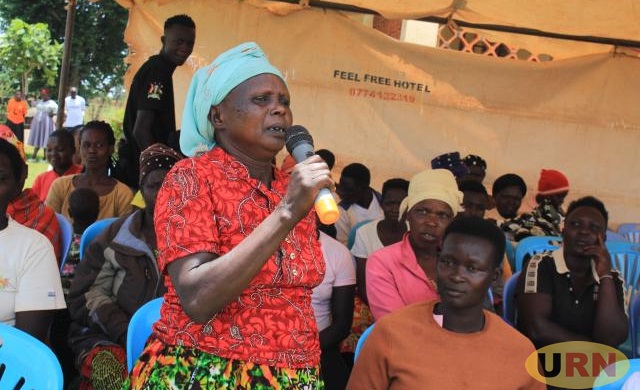
KAPCHORWA, UGANDA | THE INDEPENDENT | Center for Health, Human Rights and Development (CEHURD) has called upon all stakeholders to step up efforts in ending Sexual and Gender-Based Violence (SGBV) in the Sebei sub-region. Common forms of SGBV in the region include Female Genital Mutilation (FGM), defilement, domestic violence, and rape.
Edith Sifuna, the Programs Officer in charge of Advocacy at CEHURD, attributed the persistence of these practices to cultural norms that continue to hinder advocacy efforts in the fight against SGBV in Sebei.
Sifuna noted that culture has particularly enabled the continued practice of FGM in the region. “We have understood, for example, that when a lady is not mutilated, she won’t enjoy certain rights like collecting food from the granary, land ownership, and participating in decision-making, which is very sad,” she said.
According to Sifuna, many women are severely affected by SGBV but remain silent due to fear and the absence of safe platforms for reporting. She also cited cases where parents compromised justice by concealing evidence.
In one instance, she recounted a case where a teenage defilement victim—after her parents sought CEHURD’s legal support—declined to open up and instead claimed the act was consensual.
Sifuna urged victims to report all SGBV cases to police and not to remain silent, stressing that opening up is the only way to access justice. Henry Akuson, the Vice Chairperson LCIII of East Division in Kapchorwa Municipality, pointed to alcoholism and parental negligence as major contributors to SGBV cases.
He said stressed men often turn to alcohol, which eventually leads to violence. He also noted that the absence of parental guidance gives teenagers too much freedom, leading to early pregnancies and child marriages. Benna Chebet, the Woman Councilor LCIV for East Division, said the burden of providing for families has shifted to women as many men engage in gambling and alcoholism.
She added that this has contributed to school dropouts, as children are forced into labor to meet basic family needs such as food and healthcare. “This is a community that solely depends on children and women as sources of food, and it is very embarrassing,” said Chebet. Akuson also decried the tendency of some parents to negotiate settlements when their daughters are impregnated.
“Most dreams of young girls are shattered due to such vices,” he said. Mark Cherop Cherirei, the Programs Coordinator at Kapchorwa Civil Society Alliance (KACSOA), urged the community to uphold human rights as a tool to end family injustices. “If we become law-abiding, peace reigns and responsibilities take shape,” said Cherirei. Vincent Onyo, the Grade One Magistrate in Kapchorwa, reminded the public that SGBV-related crimes attract harsh penalties.
He emphasized that ignorance of the law, including blaming such acts on alcoholism, is not a defense in court. “SGBV cases are criminal and should be reported directly to police—not to the LC1 Chairperson,” said Onyo. He also warned that some LC1 Chairpersons have been found to compromise justice by concealing cases, and if caught, they will face charges.
****
URN
 The Independent Uganda: You get the Truth we Pay the Price
The Independent Uganda: You get the Truth we Pay the Price



